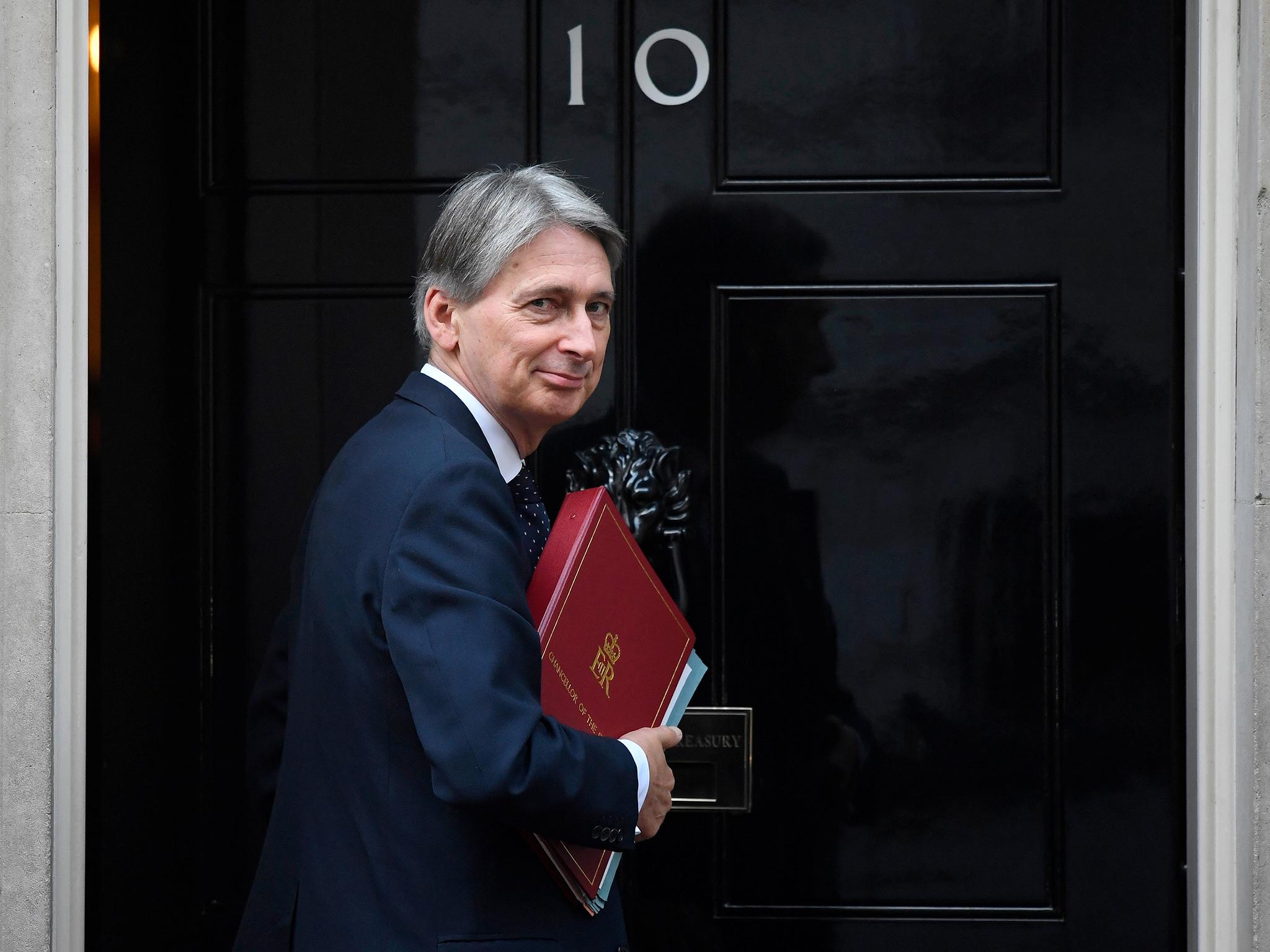What to remember if you see any headlines about boosting benefits today
Plans to allow benefit recipients to keep more of what they earn dismissed as not doing enough to reverse cuts

The Chancellor's reported plans to use today’s Autumn Statement to "boost" investment in the welfare system have been described as "too little too late" because the Government has already committed to cutting benefit spending by £12 billion.
Philip Hammond is expected to use his first Autumn Statement to announce a £1 billion increase in spending on benefits for people who are in work.
The plans will see claimants on Universal Credit allowed to keep 2p more of every pound they earn, in a move designed to help people who are in work but “just about managing” – or “JAMs” as they are referred to by government officials.
However, Mr Hammond’s predecessor, George Osborne, had already announced £12 billion of welfare cuts after last year’s general election – leading to accusations that any Conservative claims to be investing in welfare would be misleading.
John McDonnell, Labour’s Shadow Chancellor, said: “It would appear that this Autumn Statement is set to fail our first test to provide actual support for those on low and middle incomes.
"If as reported, all the Chancellor is offering is a 2 per cent change in the taper rate, then it will be too little, too late for those working families who have had to bear the brunt of six wasted years of failed Tory economic policies.
“Despite all their rhetoric last month, and before the ink is even dry on the Autumn Statement, it looks like it will be jam tomorrow for working people under Theresa May and Philip Hammond.”
A Treasury spokesman declined to comment on the content of the Autumn Statement but said: "The Government is committed to delivering the welfare savings already announced. The Government has no plans to introduce further welfare saving measures in this Parliament beyond those already announced.”
In pictures: Anti-austerity protest outside Downing Street
Show all 7Unemployed welfare recipients who then find a job currently lose 65 per cent of what they earn – a figure that was raised by Mr Osborne from 55 per cent. Mr Hammond is expected to reduce that to 63p, meaning someone earning the Minimum Wage could receive around £5.00 extra per week.
Proposed cuts to in-work benefits have previously been criticised for disincentivising people to find work and penalising those who are trying to get on.
Mr Osborne had made welfare spending cuts a core element of his plan to reduce the deficit, but provoked a rebellion among Conservative MPs after attempting to cut tax credits paid to people who are in work.
That move triggered the resignation of Iain Duncan Smith, the then Work and Pensions Secretary, and led to an eventual climb-down by Mr Osborne.
Mr Duncan Smith has continued to call for cuts to Universal Credit to be scrapped, but the Chancellor is understood to have rejected proposals to reverse the cuts entirely at a cost of around £3 billion. Instead, claimants will be allowed to keep more of the money they earn.
Mr Hammond is also expected to use the Autumn Statement to announce a ban on fees charged by letting agents - a move that is expected to save millions of renters an average of £337.
The policy marks another significant break from the previous Government, which in May ruled out taking action against letting agents because it “would not make renting any cheaper for tenants – tenants would still end up paying but through higher rents”.
Subscribe to Independent Premium to bookmark this article
Want to bookmark your favourite articles and stories to read or reference later? Start your Independent Premium subscription today.

Join our commenting forum
Join thought-provoking conversations, follow other Independent readers and see their replies